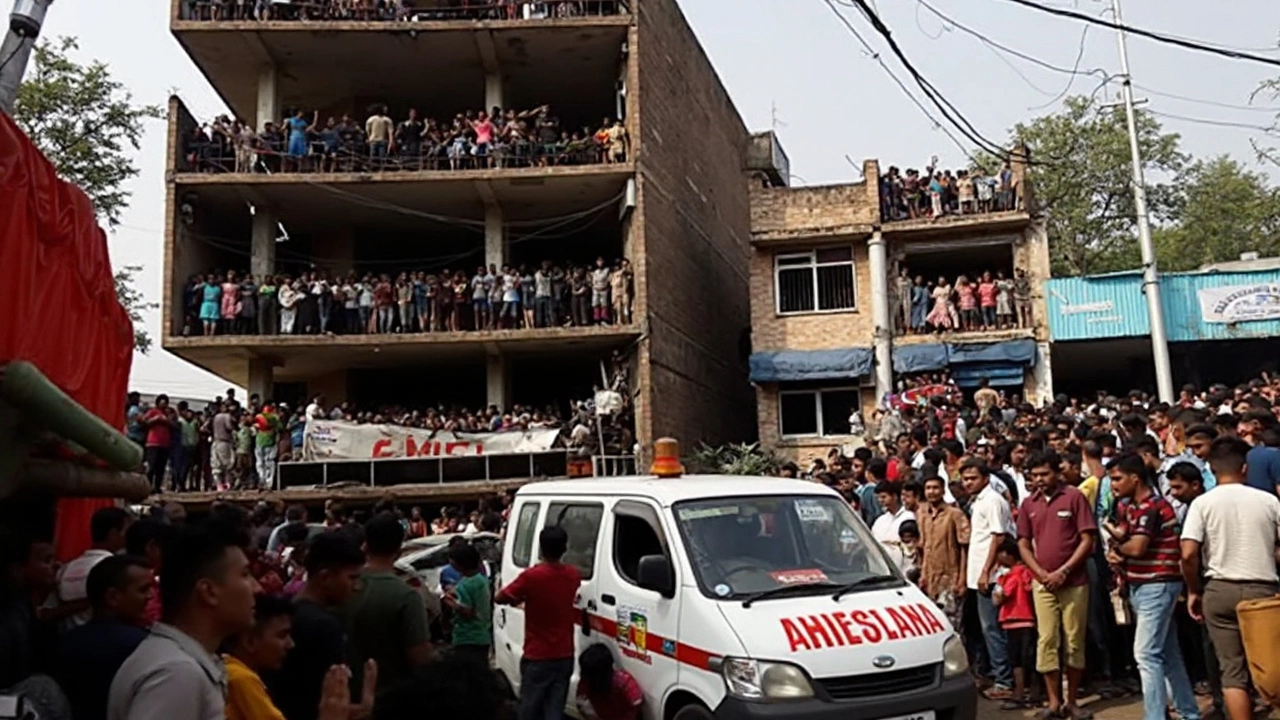Devastation at Milestone School: A Nation Shaken
On July 21, 2025, chaos shattered the quiet of the Uttara neighborhood in Dhaka, Bangladesh. Just after lunch, a Bangladesh Air Force training jet with two years’ service plummeted out of the sky and slammed straight into Milestone School and College. The building, busy with nearly 600 students aged 4 to 18, instantly turned into a disaster zone. The crash and the inferno that followed claimed at least 31 lives—25 of them children—alongside a teacher hailed as a hero and the pilot himself. More than 170 people suffered burns or injuries, with dozens still in critical care.
Witnesses say the jet was wobbling as it approached, spewing smoke and trailing flames. It burst through the school’s upper floor with a deafening crash, setting classrooms ablaze and leaving corridors choked with fire and smoke. Students who escaped describe chaos: fire alarms blaring, windows shattering, classmates screaming for help, and teachers frantically leading evacuation efforts. One teacher, Jasmin Hossain, lost her life while carrying children from the second floor. Emergency crews pulled victims from the rubble for hours, dousing flames and airlifting the most badly injured to city hospitals.
Protests, Demands, and a Nation in Mourning
By the next morning, word of the tragedy spread far beyond Dhaka. Parents, classmates, and staff gathered at the crash site, their grief quickly boiling over into outrage. They demanded answers: How could a military training jet fly so low over a school? Where was the oversight? Hundreds of young protesters, clutching photos of lost friends, blocked nearby roads. Their message was clear: accountability for those responsible, immediate financial compensation for families, and a permanent end to military training flights over city neighborhoods. Bright banners reading "Never Again" and "Protect Our Children" dotted the crowd.
The government responded quickly, announcing July 22 as a national day of mourning. Flags flew at half-staff. Morning assemblies across the country stood silent for a minute. Prime Minister Sheikh Hasina visited victims’ families, promising "no stone unturned" in the investigation. Yet trust in the process remains shaky. Many point fingers at lapses in military aircraft maintenance and weak regulation of flight paths—issues that the country has debated but rarely addressed head-on.
- 171 people were evacuated from the burning building, many by helicopter as city roads quickly jammed with traffic and onlookers.
- 78 injured remain hospitalized, including children battling for their lives in intensive care; seven more died from injuries overnight.
- The jet, an S-211 trainer used since 2023, reportedly suffered a sudden engine failure but managed a partial turn away from even more crowded blocks nearby.
Complicating the fallout, Bangladesh’s civil aviation authority has been left out of the official probe, sparking concerns about transparency. Activists and aviation experts question whether military protocols for training flights over populated areas have changed at all in the past decade, despite several near-misses. Calls for new regulations have grown louder, as families look for more than just public condolences—they want real change to prevent another such catastrophe.
This disaster could become a turning point for Bangladesh’s air safety strategy, but for now, the community is still sifting through the ashes and mourning those they lost.
